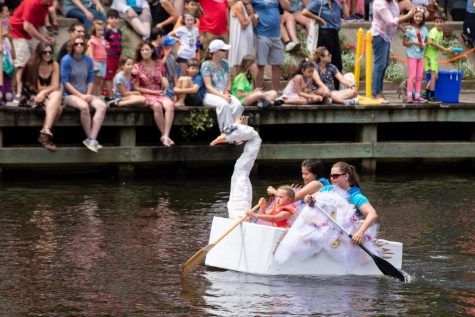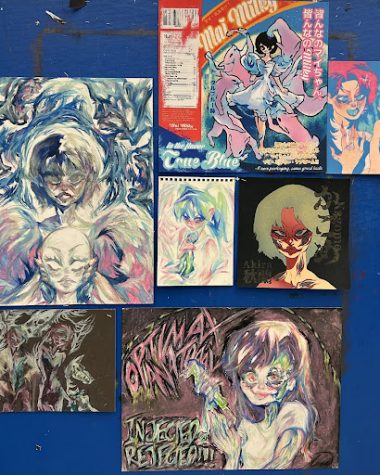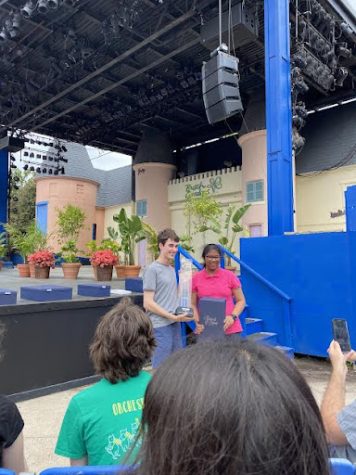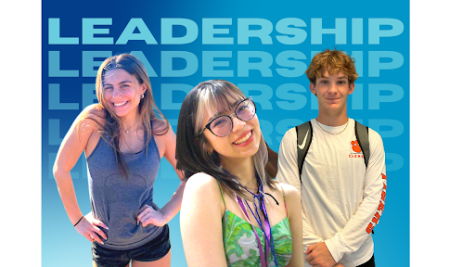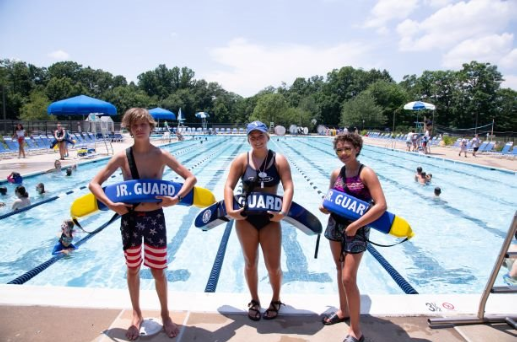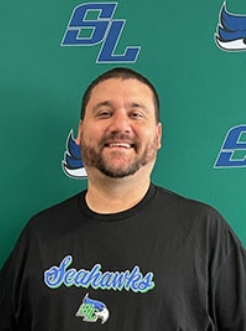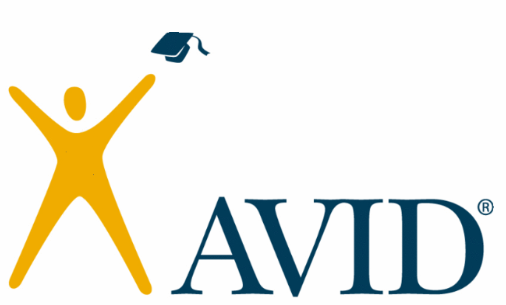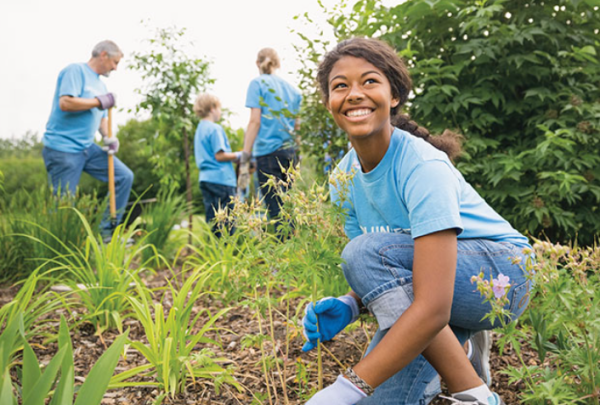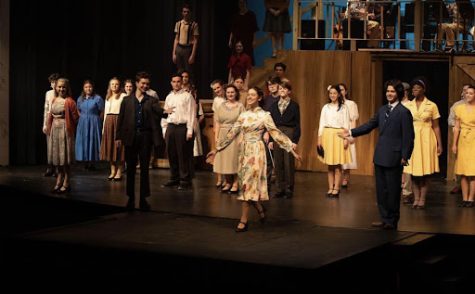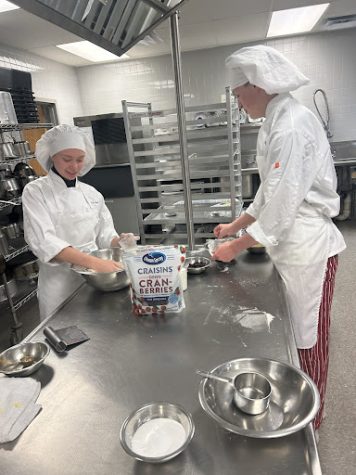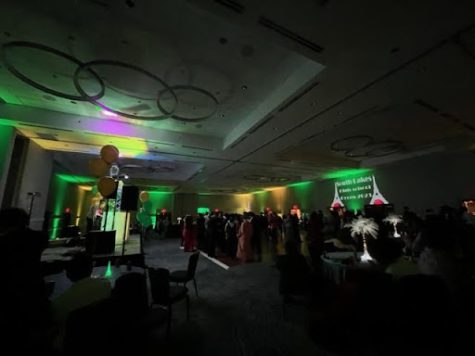State science fair champions celebrate their success

Image via Sofia Pakhomkina
Clean energy is a hot topic on everyone’s minds, but not many people know much about it. South Lakes students Sofia Pakhomkina and Ellie Ngo chose to dive into the issue headfirst for their science fair project, making it all the way to the state championships.
⸺
Emmalina Sjapeki: Thanks for talking with me! So let’s get into it… First off, what was the focus of your project?
Pahomkina: Our project was about the effect of temperature and cooling systems on solar cell efficiency. We wanted to find a temperature in which solar cells performed best, which is a pretty contentious issue in the scientific community right now. If a correlation between temperature and solar cell efficiency was found, we also wanted to investigate cooling methods which would potentially increase the efficiency of the solar cells even further.
Sjapeki: And what were the main findings of the project?
Pahomkina: Solar panels perform better in cold temperatures rather than hot temperatures. We tested the solar cell at different temperatures, and found that the solar cell had a higher voltage output at 10 degrees celsius, as compared to 40 degrees. Out of all the cooling methods, the light background cooling methods were the most effective. So if you live somewhere where it’s consistently colder, and you install a light roof, your solar panels will perform better!
Sjapeki: Oh wow. That’s contrary to some popular beliefs. So why did you choose to investigate this topic?
Pahomkina: Clean energy is pretty popular right now, [and] everyone is looking to move away from fossil fuels. Solar panels are just something we were interested in, it’s something that’s being expanded on in the scientific community, and if we could contribute anything that would be helpful then we wanted to do it!
Sjapeki: I know that science fair projects are often pretty in-depth, how long did the investigation take you?
Ngo: The experiment itself took about a week…we had some trial and error. [Laughs] The collection of data, making graphs and tables, and making the board into something that was easily consumable took a while longer. Following the school science fair, we had to revise our board, because it didn’t fit all the requirements for a regional or state science fair board, so we ended up having to remake it entirely.
Sjapeki: Ouch. That actually ties into my next question: what were the challenges of this project?
Ngo: We had a bit of an issue with our original solar panel, where it wouldn’t connect well to our multimeter, so we couldn’t get accurate readings every time. If you breathed on it wrong it would stop reading! We tried a bunch of methods to keep it attached to the solar panel, and almost none of them worked, so we ended up getting a new solar panel. That worked much better.
Sjapeki: On a lighter note, what were the successes of this project?
Ngo: I mean, we won! [Laughs] That would probably be our most significant success! But having that exposure to the scientific world, and being able to see all the other cool projects, and meeting people who are working in these industries who could help us professionally… I thought that was really cool.
Sjapeki: Oh, is this topic relevant to either of your career goals?
Ngo: Absolutely! I’m looking to be an aerospace engineer, and we got awards from aeronautics companies, so we got some exposure to people in the industry.
Pahomkina: I want to be an electrical engineer, and this is pretty much what they do! Investigating renewable energy to make it into something that is practical and can be implemented on a large scale is something that people in the field are really looking into right now.
Sjapeki: What advice would you give to students who want to participate in science fairs in the future?
Pahomkina: Pick a topic you’re interested in, not just one that you think can get you a good grade. Also something that’s relevant; one of the reasons we think our project did so well is because clean energy is so relevant right now. And be ready to revise your project many, many times. [Laughs]
Sjapeki: Are there any further steps after the state science fair championships?
Pahomkina: The way it works at the state level is you can place first, second, third, or receive an honorable mention. If you place in one of those you get monetary prizes and certificates, but you don’t get to move on. You have to receive a grand prize to move onto the International Science and Engineering Fair (ISEF).
Ngo: We weren’t present for grand prize judging, so we couldn’t move on. We didn’t think we would win and we had prior engagements, so. If we had known we would win we definitely would have gone!
Sjapeki: Well, state champions is still a big accomplishment, so congratulations! Thanks for your time!
This interview has been edited and condensed for clarity.
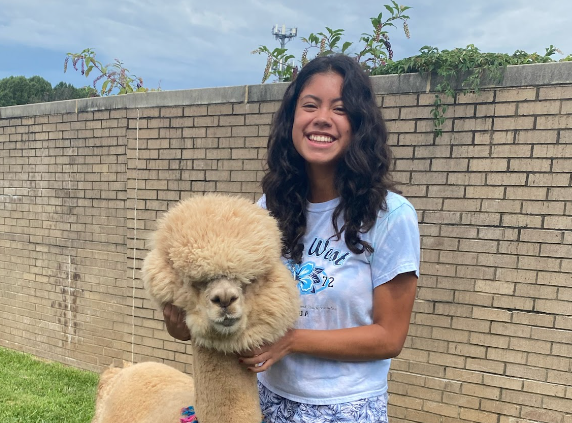
Emmalina is currently a Senior at South Lakes High School and Co-Editor in Chief of the Sentinel. This is her 3rd year writing for the newspaper, and she...


